National Assembly delegates from Nghe An province give opinions on the mechanism for mobilizing capital for high-speed railway investment.
On the afternoon of June 16, the National Assembly held group discussions on the Draft Law on Railways (amended). The National Assembly delegation of Nghe An province discussed in Group 4 with the delegations of Hai Phong city and Ba Ria - Vung Tau.
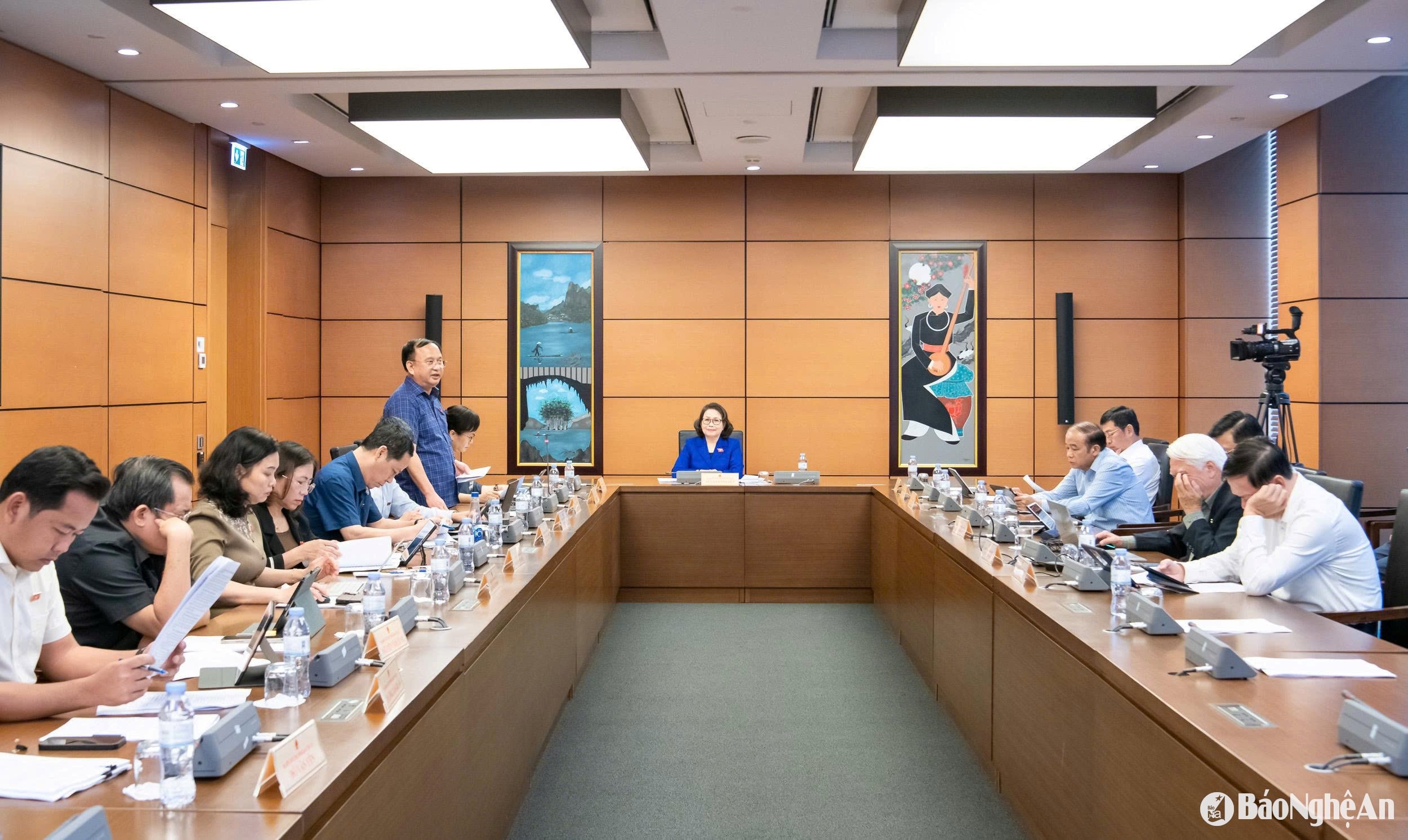
Proposetransfer regulationstax incentives, biddingto specialized law
Delegate Nguyen Van Chi - Vice Chairman of the Economic and Financial Committee of the National Assembly, the National Assembly delegation of Nghe An province directly gave comments on regulations on research, application of science and technology, technology transfer and human resource training to develop the railway industry.
The delegate pointed out that the draft proposed two notable preferential policies. The first is to allow organizations and individuals in charge of scientific and technological tasks serving railway projects to apply forms of contractor selection, such as limited bidding, designated bidding, ordering... The second is to exempt corporate income tax and personal income tax on income from such tasks.
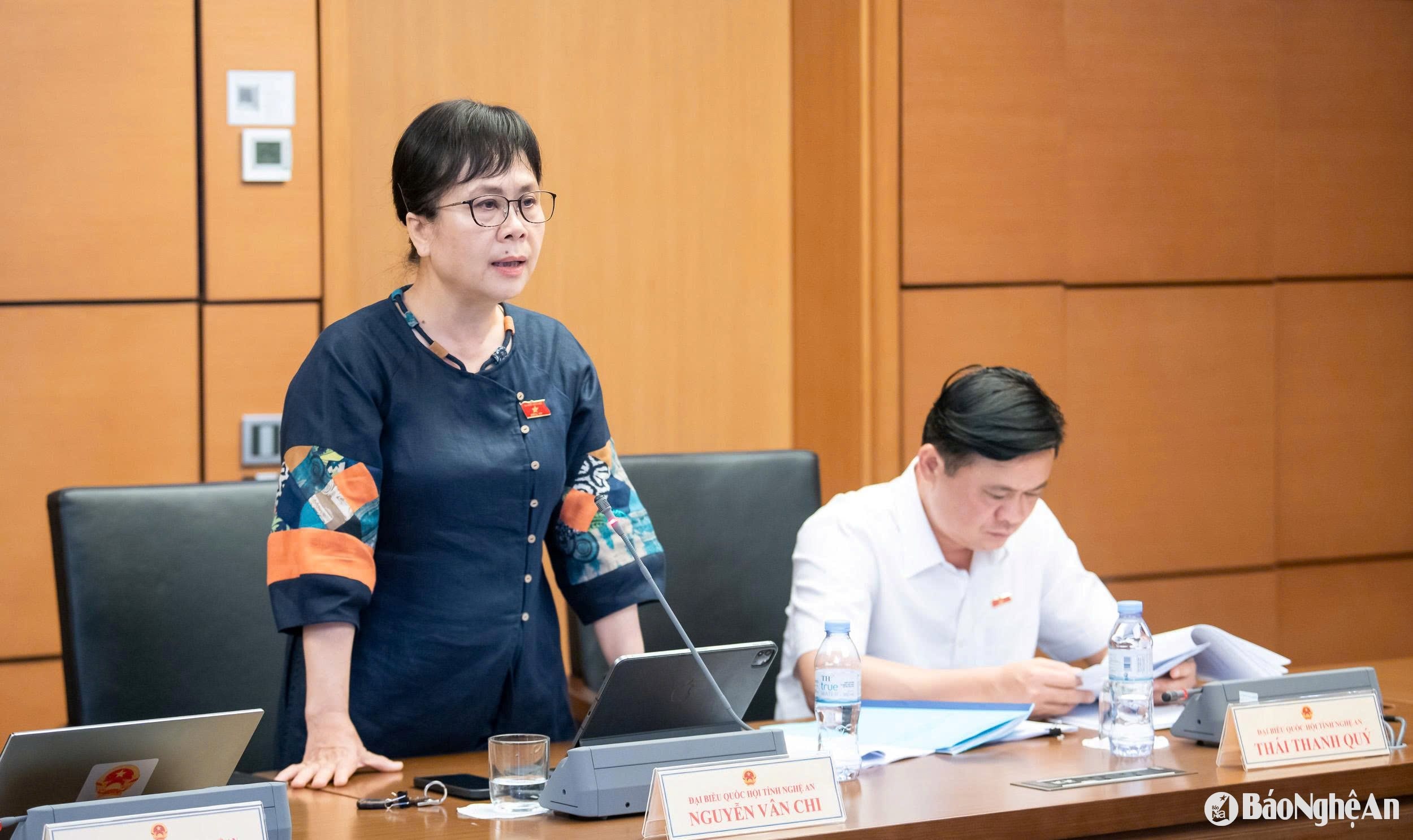
However, regarding the bidding content, the delegate cited: the National Assembly is currently considering a draft Law amending many laws, including the Law on Bidding, with the consistent spirit of implementing Resolution 57 on science and technology development. The spirit of this Resolution is to allow the application of the form of selecting appropriate contractors for science and technology tasks within the unified scope of the Law on Bidding. Therefore, if we continue to maintain a separate provision in the Railway Law (amended), there is a risk of legal conflicts arising.
Regarding the regulation on corporate income tax exemption, delegate Nguyen Van Chi said: The Law on Corporate Income Tax (amended) was passed by the National Assembly on June 14, which includes regulations on incentives for science and technology development, in line with the Law on Science, Technology and Innovation.
The Draft Railway Law currently provides for a separate, time-limited tax exemption that is incompatible with the current tax law. This not only creates overlap but also leads to the risk of conflict between laws within the same system.
The delegate also noted: The draft Railway Law already stipulates that enterprises performing scientific and technological tasks are entitled to incentives as high-tech enterprises according to specialized laws, which means that the incentive principle is guaranteed. Therefore, continuing to add tax exemption regulations would be duplicative and inconsistent.
.jpg)
Regarding personal income tax, the delegate analyzed: currently, the Law on Science, Technology and Innovation is also being amended and has provisions on exemption of personal income tax for a period of 5 years for income from performing scientific and technological tasks. However, the draft Law on Railways stipulates an indefinite exemption of personal income tax.
From the above analysis, delegate Nguyen Van Chi proposed to carefully review and consider removing contents related to tax incentives and bidding mechanisms from the draft Law on Railways (amended); at the same time, bring back the corresponding specialized laws such as the Law on Bidding, Law on Corporate Income Tax, Law on Personal Income Tax.
This will ensure consistency, synchronization, ease of implementation and avoid conflicts between laws, especially in the context of the National Assembly amending many related laws in the same session.
Construction of railways in the direction of dual use
Regarding the draft Law on Railways (amended), Major General Tran Duc Thuan - Member of the National Assembly, full-time member of the National Assembly's Committee on National Defense, Security and Foreign Affairs, and delegate of Nghe An Delegation contributed many opinions focusing on practicality, dual-use and requirements to ensure safety in the exploitation of railway infrastructure.
Regarding railway development policy, delegates highly appreciated the fact that this draft law has expanded the scope of regulation, adding types such as high-speed railways and urban railways, correctly reflecting the strategic infrastructure development orientation according to the Party and Government resolutions.
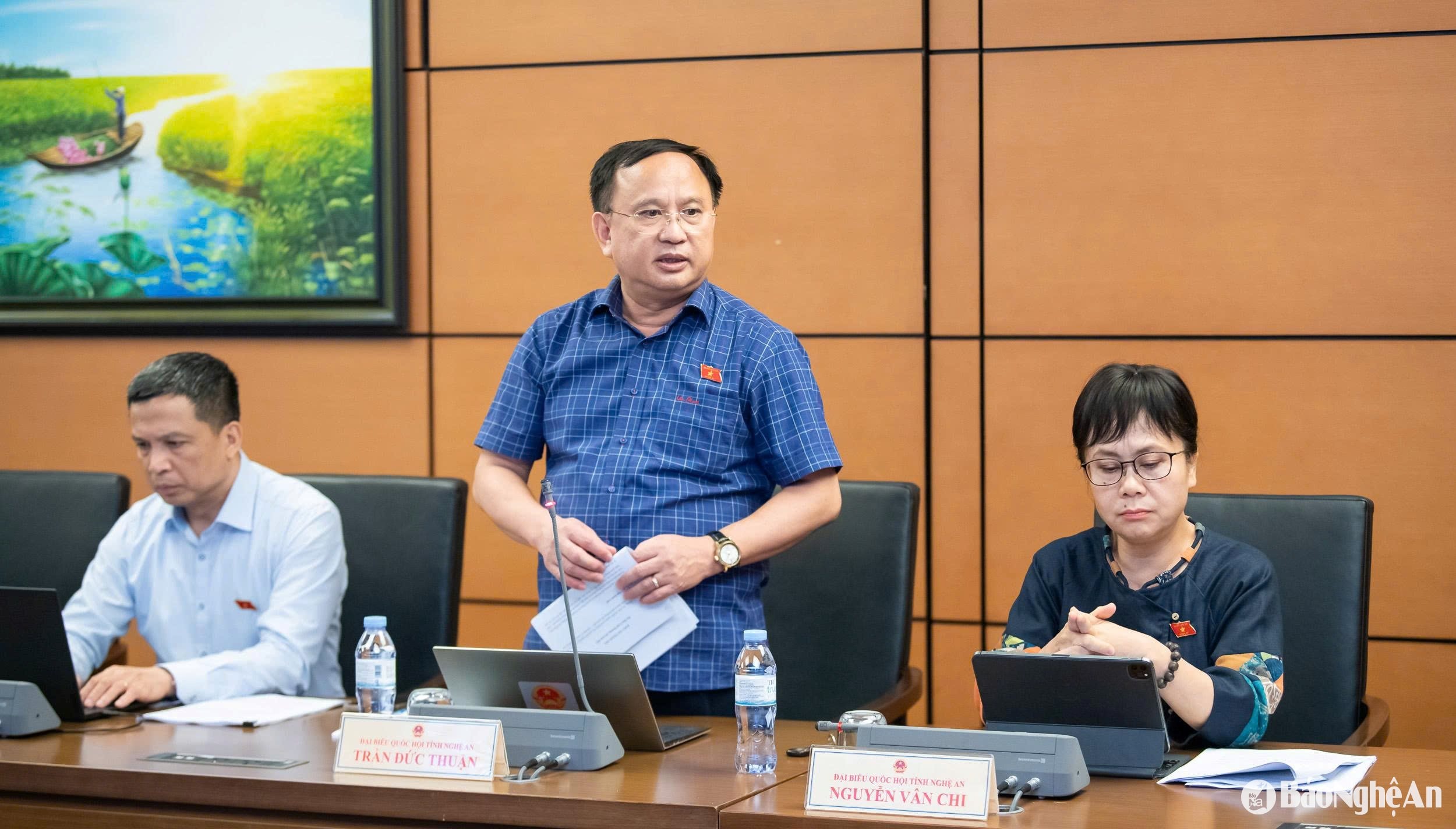
However, the delegate from Nghe An suggested that it is necessary to pay attention to developing specific policies for the railway system in mountainous areas, border areas, and key areas of national defense and security. According to the delegate, railways not only serve people's lives or transport goods, but also need to be identified as a strategic tool to ensure connectivity in remote areas and strategic areas. These railways need to be designed from the beginning in a dual-use direction, able to serve both development and defense goals, ready to respond to urgent defense situations.
Regarding the mechanism for mobilizing investment capital for railway development, Major General Tran Duc Thuan said: Although the draft has opened up incentive mechanisms, it is not specific enough to create confidence for investors. He proposed that it is necessary to more clearly stipulate forms of support such as preferential credit, loan guarantees, tax exemptions and reductions, creating conditions for the private sector to participate in investing in large projects. In fact, according to delegates, many businesses have expressed interest in this field but are still concerned about legal risks and the lack of a suitable financial corridor to mobilize capital.
An important point in the delegates' speech was the issue of ensuring railway safety and security. Major General Tran Duc Thuan suggested that it is necessary to expand the legal scope for non-traditional threats such as terrorism, cyber warfare, major natural disasters, epidemics, etc. According to him, the draft law needs to add the concept of "non-traditional security" and stipulate an emergency response mechanism, including coordination between security forces on trains with police and military forces in unusual situations.
During the working session, the National Assembly discussed in groups the investment policy for the Ho Chi Minh City Ring Road 4 construction investment project. Major General Tran Duc Thuan contributed opinions related to: investment capital structure; compensation and site clearance; authority to adjust total investment; sanctions to handle violations if there is a delay due to subjectivity.

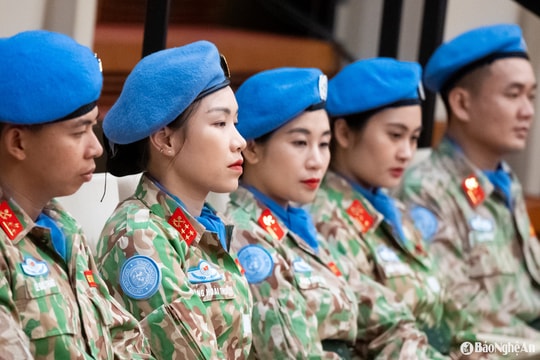
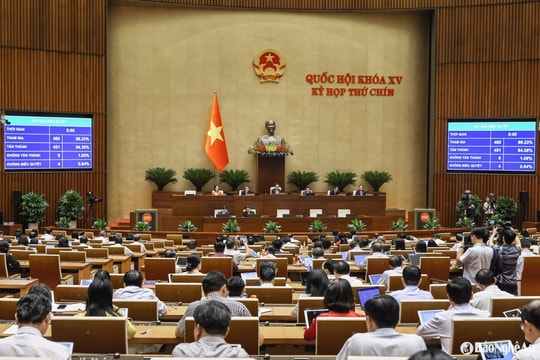
.jpg)
